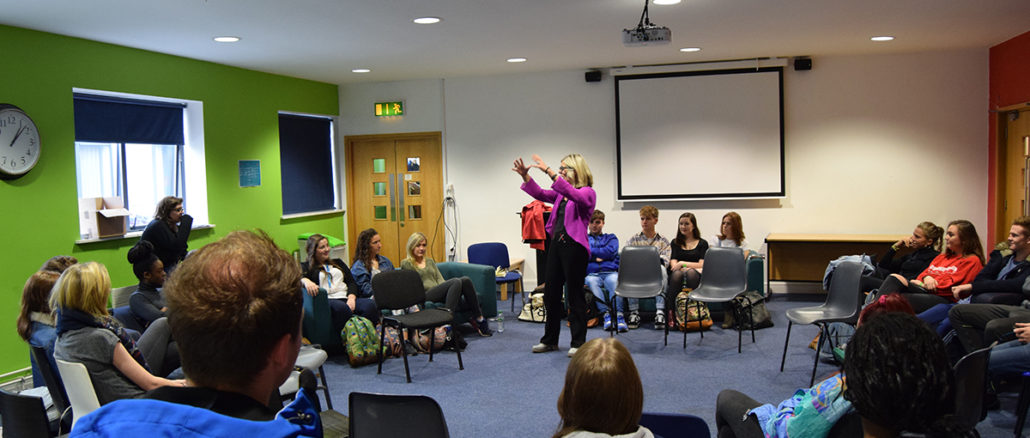
[dropcap]P[/dropcap]enis rodeos, walking vaginas, and free condoms were some of the highlights from DCU’s first official SHIFT week, the Students’ Union’s first welfare campaign of the year.
Sexual Health in First Term (SHIFT) Week, which took place last week aimed to promote a healthy sex life among students by being safe and consensual. The week was organised in chief by VP for Welfare and Equality, Cody Byrne.
Previously known as SHAG Week, Byrne changed the name as he felt that the term “shag” may make people feel uncomfortable, despite standing for sexual health awareness and guidance.
Both the Glasnevin and St. Patrick’s campuses saw an array of events throughout the week, including a discussion with a man living with HIV as well as a sexual consent talk run by DCU’s Feminism Society and the Dublin Rape Crisis Centre.
In comparison to previous SHAG weeks at DCU, Byrne decided to add more educational components to this year’s campaign.
“There has to be the Sex Magicians because that’s what people expect by now. I don’t know how educational they are, but where there were gimmicky events there were also educational events,” said Cody.
Students at St. Patrick’s College were educated on STDs last Wednesday with ‘Don’t Catch the STD’, where students were given cards bearing the names of different STDs. They were then given corresponding explanations of the diseases, as well as a free condom.
Sex therapist, Siobhan Higgins, encouraged students to become more comfortable when talking about sex and emphasised the importance of using the correct language when speaking about sexual activities and identities.
DCU’s SHIFT Week runs in accordance with the Union of Students in Ireland’s SHAG Week, which urged young people to get tested regularly for STDs. This comes after a HSE report which showed an increase in 22 per cent increase in syphilis from 2014 to 2015. Syphilis diagnoses were 2,290 per cent higher in men than women, with 239 men diagnosed in 2015 compared to only 10 women.
Reported cases of Gonorrhea were five times higher in men (1,083) than in women (221) in 2015.
Clara Hickey
Image: Darragh Culhane


Leave a Reply